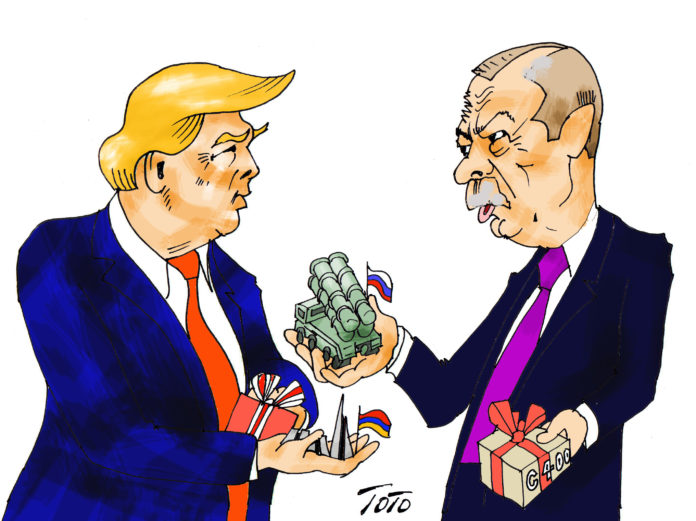International relations have their own logic. No matter how chummy heads of states may appear with each other publicly, their policies will continue along their course, based on national interests.
The meeting on November 13 between Presidents Donald Trump and Recep Tayyip Erdogan at the White House was long planned. But there was strong bipartisan opposition from Congress, which had sought to rescind Mr. Erdogan’s invitation.
Erdogan himself publicly cast doubt over making the trip, after the House of Representatives overwhelmingly passed House Resolution 286, recognizing the Armenian Genocide, on October 29. But there were compelling reasons to bring the two sides together, because the erstwhile allies and fellow NATO members had been drifting apart dramatically and straining the relationship to the breaking point. What happened on the Syrian-Turkish border after the withdrawal of US forces only exacerbated the situation, whereby allies and enemies were hard to distinguish.
Despite his advisors’ opposition, President Trump was threatening to pull out US forces from Syria, where the various forces faced tremendous challenges and confusion. Each party involved would inherit a piece of the action; in the first place, Ankara would receive its proposed security zone carved out of Syrian territory, while having a free hand to slaughter the Kurdish forces which had been fighting ISIS alongside the US. Russia could achieve its long-proposed goal of seeing the US forces out of the Syrian battleground and the Syrian regime could consolidate its position in the region, contrary to Ankara’s avowed goal of regime change in that country.
President Trump’s singlemindedness prevailed; Turkey entered Syria and began slaughtering the Kurds who were abandoned by Mr. Trump overnight because they were “no angels.”
In between Mr. Trump had cold feet and relented, leaving a residual force to guard the Syrian oil wells. “I like oil,” the US president said, and it is assumed that the oil drilled in Syria will be sold through Turkey, yielding a monthly revenue of $30 million to benefit the displaced Kurds.








